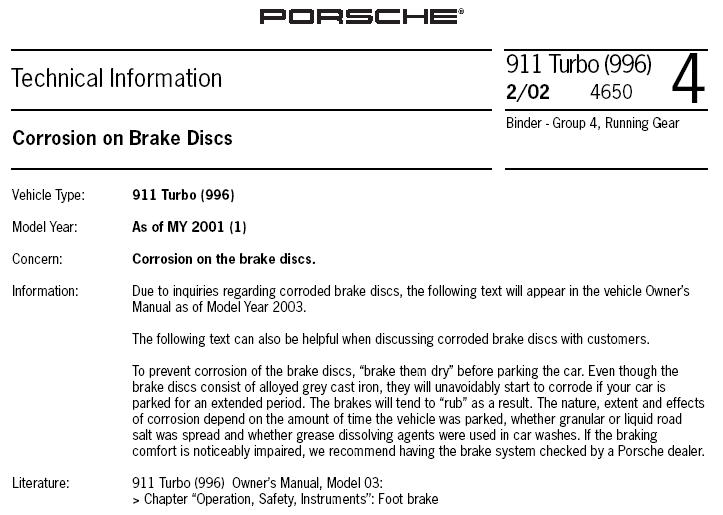So on a 996Turbo,the brake discs are Alloyed Grey Cast Iron.
So they are are definately not steel."Grey"--means that the carbon is held in laminar form within the cast iron structure & so they are definately not Ductile or SG(spheroidal graphite) cast iron.
Alloyed--implys mixing the cast iron with other metals & frankly may only mean slight additions of Nickel/Chrome as innoculents at the ladle stage after bulk melting using either cupulas or electric furnaces.
These melting processes would normally be used by specialist foundries making brake discs & drums & flywheels because of the quantities invoved-generally they are melting the same metal specification everyday & the feedstock is generally pig iron,cast iron scrap,returns from the fettling shop including runners,risers,pouring basin blocks ,actual scrapped product & limestone.There might be the odd amount of steel scrap in the other scrap-final chemical spec is achieved by the mix of quantities,& by final innoculation mentioned above.
The carbon equivalent of the melt is checked & can be adjusted by addition of graphite & producers will endeavour to maintain the CE closely-the lower the figure,the stronger the iron & less corrosion resistance,conversely-the higher the figure you get weaker iron but more corrosion resistance.
There are other very minor but important constituents such as Manganese,Silicon,Phosphorous which do have a significant part to play together with the carbon content on the CE figure.










